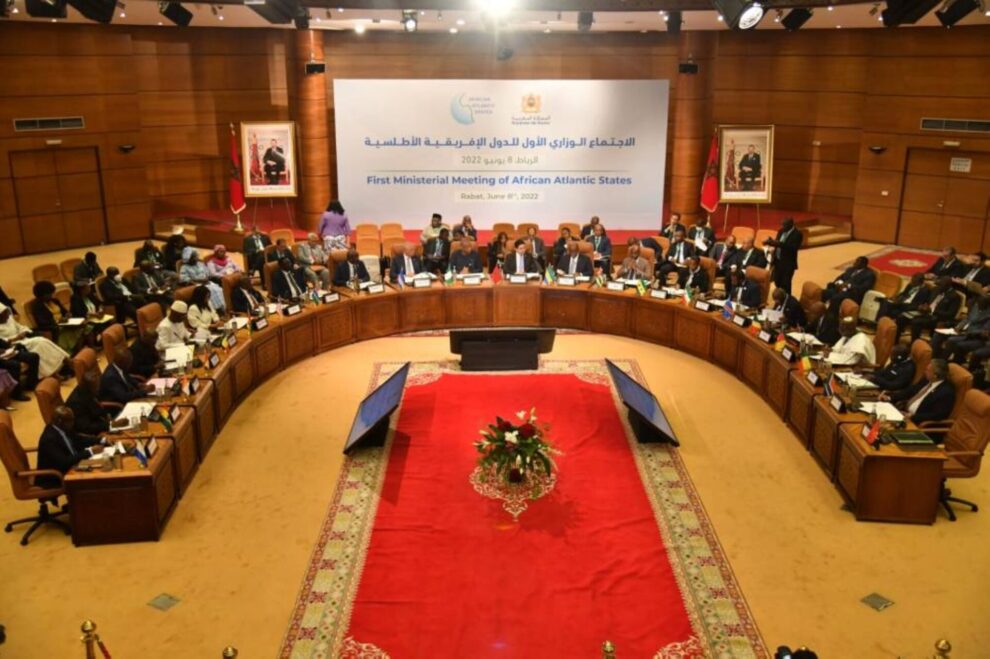The 2024 Finance Bill (PLF-2024) faces a very particular context at the national level with the recent Al-Haouz earthquake, in addition to the already difficult world situation characterised by global geopolitical tensions and persistent inflationary pressures.
These State Budgets pose real challenges for the Akhannouch government for the coming year. It envisages fighting inflation, combating regional and global climatic, political and economic instability, as well as underpinning the social state and national security.
The PLF-2024 comes on the heels of the painful impact of the earthquake that devastated Al-Haouz, and at a complex global juncture marked by economic slowdown, major geopolitical tensions and inflationary pressures on energy prices.
In fact, one of its priorities is the implementation of the Programme for the Reconstruction of the regions affected by the earthquake, as well as the strengthening of measures to combat its economic impacts.
As has been the case for the past three years, the PLF-2024 plans to fight inflation, which weakens the middle class and impoverishes the poorest. Last September, inflation rose to 4.9% compared to the same month in 2022. The government wants to reduce this rate to 3.4% in 2024 and 2% from 2025. To this end, it will deploy the “Green Generation” strategy, already planned for the period 2020-2030, with more than 110 billion dirhams to support and improve agricultural production and distribution. At the same time, the supply of drinking and irrigation water will be ensured, also foreseen in the “Water Resources Management” programme of 143 billion dirhams from 2020 to 2027.
Morocco, as an agricultural country, continues to invest in water in the face of climate change, which has an impact on the domestic economy in terms of inflation and, in particular, on exports. For example, according to EastFruit data, citrus fruit exports in 2023 amounted to only 30,000 tonnes of oranges worth $13.7 million in the first eight months of this year, compared with 109,000 tonnes in 2022 over the same period, generating revenue of $71 million.
These budgets have a strong emphasis on their social character, with the addition of the direct social aid programme for 2024, which starts in December of this year, as well as the new housing assistance programme for the beginning of 2024. The latter is also extended to Moroccans living abroad (MRE) who do not own property in Morocco.
These new direct aids are part of the broad social programme launched in 2022 and projected until 2025, under the instructions of King Mohammed VI, to end poverty and reduce the precariousness of needy families. It began with the generalisation of compulsory health insurance (SMO) and has already covered more than 21 million Moroccans. The social programme as a whole will end with the compensation for job loss and the expansion of the pension scheme membership base in 2025.
Specifically, the direct social benefit will benefit (1) families with children, (2) specific families without children or with children over 21 years of age, and especially families caring for elderly dependents. And finally (3), a birth bonus will also be awarded for each birth.
Alongside the social programme, the PLF-2024 highlights the defence budget in view of the instability in the Sahel and the direct and manifest threat from Algeria. Military spending increases from 66 billion dirhams (approx. 6.6 billion euros) in 2023 to almost 70 billion dirhams (approx. 7 billion euros) in PLF-2024. Adding the anticipated commitments, the expenditure would amount to 125 billion dirhams (approx. 12.5 billion euros). A budget that will cover the cost of professionals advancing through the ranks, air defence warfare equipment (radar systems and short-, medium- and long-range batteries) and the consolidation of the Kingdom’s military industry.
To sustain this spending, it would be necessary to increase revenues, i.e. the country’s GDP. The government will rely on several levers. First, it will encourage investment and, second, it will implement fiscal measures. It will work on consolidating the investment dynamic by implementing reforms in areas such as agriculture, tourism and public administration. The latter is undergoing a process of deconcentration and advanced regionalisation. Reforms aimed at making investment a key element in boosting the economy in productive sectors through the Mohammed VI Investment Fund. All this on the basis of the new Investment Charter.
The PLF-2024 will gradually and without delay integrate informal activities into the formal economy, i.e. it will fight against the hidden economy and tax fraud. It also provides for a kind of tax regularisation or amnesty for taxpayers with tax residence in Morocco, whether natural or legal persons, who hold undeclared funds abroad, such as bank accounts, shares, bonds, real estate and other assets. Taxpayers will be able to declare them, or return the money or its value by paying a one-off fee ranging from 2 to 10%, depending on the case.
At the same time, the reform, already started in 2022, will continue to improve the business climate by simplifying administrative procedures. This will undoubtedly trigger the rapid creation of companies and new jobs. And, as a result, it will increase production as well as the tax contribution. Moreover, for the social state to be effective, the Government insists, in this PLF-2024, on continuing with the reform of the justice system to defend and promote the fundamental rights basic to the development of individuals and thus guarantee social peace.
Finally, in order to balance the macroeconomic magnitudes and meet the PLF-2024 objectives, namely to reduce the budget deficit to 4% with an estimated growth of 3.7%, it is proposed to amend the Finance Law to introduce new tax measures relating to VAT. Among others, the list of exempted products will be extended, such as basic products of high consumption (butter and milk derivatives), medicines or school supplies, etc. Digital commerce will be taxed, and the percentages for products such as electronic tobacco, alcoholic beverages and transport, with the exception of trains, will be increased.
Income tax will also be intervened, for example with regard to the deduction of social security contributions for professionals, the self-employed and the self-employed. At the same time, taxes on registration fees for legal acts of various kinds will be adjusted.
Social assistance as a whole underpins the social state in the Kingdom of Morocco, which will cost 25 billion dirhams (around 2.5 billion euros) by 2024, and which could be described as a “social revolution”. It is a historic initiative that will strengthen the social contract between the state and citizens, foster a sense of belonging to the homeland and increase citizens’ trust in their institutions. Indeed, this redistribution of wealth does justice to a people who have been able to make sacrifices over many years of hardship and difficulties following the recovery of the Moroccan Western Sahara, showing solidarity and loyalty to the values of the Kingdom.
The PLF-2024 has received 410 amendments from different political groups. In general, it gives continuity both to the consolidation of the social state, which culminates in 2025, and to the underpinning of the military industry and national defence.
Source: Atalayar
















